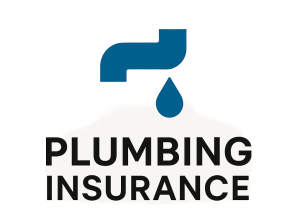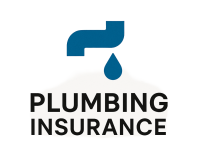Residential Plumbing Insurance vs. Commercial Coverage – What’s Best for Your Business?
When it comes to plumbing, not all jobs are created equal. Residential jobs typically involve smaller, more predictable projects—like fixing a toilet or installing a water heater—while commercial jobs often mean working on complex systems in high-rise buildings, factories, or shopping centers. With different types of work come different types of risks. That’s why understanding the difference between residential plumbing insurance and commercial coverage is crucial for your plumbing business.
If you’re searching for the right kind of insurance for plumbers, you might wonder: Do I need separate policies for home and commercial work? Or can one plan cover both types of jobs? More importantly, how does this affect the plumbers insurance cost?
Let’s break it all down—what each type of coverage offers, what it costs, and how to pick the best fit for your plumbing business.
Introduction to Plumbing Insurance
Why Insurance Matters for Every Plumber
Insurance isn’t just a box you check to satisfy state regulations—it’s a business essential. Every time you walk into a client’s home or construction site, you expose your business to risks. A burst pipe, accidental injury, or broken appliance can easily cost thousands. Worse, it could lead to lawsuits or insurance claims from homeowners or contractors.
That’s where business insurance for plumbers comes in. It helps cover the cost of property damage, injuries, equipment loss, and legal fees. It also protects your reputation—clients are far more likely to trust licensed and insured plumbers near me than those operating without proper coverage.
Defining Residential vs. Commercial Plumbing Insurance
At the core, both types of insurance protect your business—but their focus areas are different.
-
Residential plumbing insurance is designed for plumbers working in homes, apartments, or small-scale residential projects. It’s usually more affordable and straightforward.
-
Commercial plumbing insurance covers larger-scale operations like hotels, office buildings, or municipal systems. These projects are riskier and often require higher coverage limits and more comprehensive protection.
Your choice depends on the type of work you do—and the clients you serve.
What Is Residential Plumbing Insurance?
What It Covers and Who Needs It
Residential plumbing insurance is essential for plumbers who spend most of their time servicing homes. Whether you’re fixing leaks, installing bathtubs, or unclogging drains, residential jobs carry their own set of risks.
Here’s what this insurance usually includes:
-
Plumbers liability insurance for property damage or injuries caused during residential work.
-
Tools and equipment coverage in case of theft or damage.
-
General liability insurance for plumbers, which protects you from legal fees if a client sues.
-
Optional commercial auto coverage, especially if you’re traveling between homes regularly.
This coverage is ideal for solo plumbers or small teams focused on residential repair and installation.
Plumbing Insurance for Homeowners Explained
Often, homeowners don’t realize how important it is to hire insured professionals. If an uninsured plumber causes damage to their property, they might be forced to pay out of pocket. That’s why plumbing insurance for homeowners indirectly benefits the customer too. Hiring an insured plumber ensures that any accidents during work are covered without disputes.
Homeowners can also request a plumbers report for insurance if an issue affects their property insurance claim, such as water damage or mold due to a faulty installation.
What Is Commercial Plumbing Insurance?
Typical Coverage for Commercial Jobs
Commercial plumbing insurance goes a step further. These policies are meant for contractors handling bigger, more complex jobs like plumbing systems in malls, hospitals, or factories. Because the risks—and potential damages—are higher, these policies are much more robust.
They often include:
-
Higher liability limits to handle larger lawsuits or claims.
-
Coverage for subcontractors and multiple employees.
-
Expanded plumbers insurance cover, including hazardous environments or industrial equipment.
-
More detailed plumbers liability insurance quotes tailored to high-risk work.
If you’re working with general contractors, they may require proof of plumbers public liability insurance before letting you start.
Unique Risks in Commercial Plumbing Projects
In commercial settings, one mistake can affect hundreds of people. A failed system in a hospital, for example, could lead to operational shutdowns and legal backlash. That’s why insurance plumbers need must match the scale of work being done.
You’ll also often need a plumbers report for insurance claim post-project or during disputes, which requires detailed documentation.
Key Differences Between Residential and Commercial Coverage
Types of Claims
Residential insurance typically deals with smaller, more frequent claims like water damage, appliance issues, or minor injuries. Commercial insurance, on the other hand, covers rare but high-value claims—think six-figure lawsuits, employee injuries, or structural damage.
Policy Limits and Liability
-
Residential policies may have lower coverage limits (e.g., $500K–$1M).
-
Commercial policies often start at $2M and go up, depending on project scope.
This is why comparing plumbers insurance quotes is crucial. The wrong limit could leave you underinsured.
Equipment and Team Size
Residential plumbing businesses usually have fewer tools and employees. In contrast, commercial plumbers use heavy machinery, deal with hazardous environments, and manage large teams—all of which increase your plumbers insurance cost.

